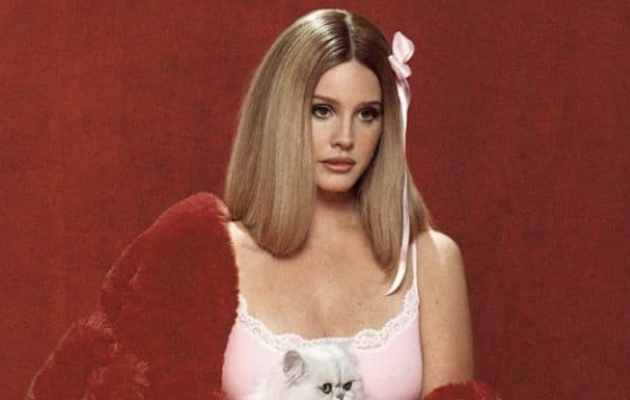Friday evening, the Columbus Fashion Council made its groundbreaking debut of the first Curve Premiere Runway Show during the 15th annual Fashion Week Columbus (FWC) celebration.
Located in Ohio State’s Urban Arts Space — located at 5o W. Town St. — the new event aims to highlight the plus-size community within the fashion industry by featuring collections from seven top designers and engaging panels that reimagine fashion's traditional beauty standards.

Keira Chatman, FWC’s executive director, said although this is the first year the event has been added to the FWC main event roster, the organization first introduced the idea during last year’s festivities.
“We did sprinkle it in fashion week last year as a mixer, and we got a really great response,” Chatman. “Right now there’s this trend in fashion where body positivity is being accepted, where there's more awareness in body positivity and diversity. We want to hit diversity in all levels, age, body, ethnicity, gender, etc. In Columbus, there are a lot more people of size than the typical model, and we wanna cater to everybody.”
Chatman said she plans to continue bringing the event back during future fashion weeks.
“We definitely plan on continuing this next year, this is another test of how it is going to perform as we’ve expanded it,” Chatman said. “This year we added a vendor marketplace where people can go and shop seven vendors, and we also have the Business of Plus and Community of Plus Panel.”
This year’s runway showcased pieces from seven designers — including Sopi Mitil, Sylvia Piechulla, Phantashia Johnson, Suzanne Vinnik, Valerie Mayen, Amber Hall and Jasmine Elder, each of which brought a new perspective to plus-size design.
Sopi Mitil, owner of the curvy petite brand Sopi Mitil Co., said she bases her colorful designs on her Haitian heritage.
“Growing up how we grew up, it was okay to mix and match patterns and colors and stuff because that's just what you had,” Mitil said. “So I took a lot of that inspiration and put that into some of my designs. I have designs where I'm mixing patterns and colors and people call it non-traditional, but, you know, it's kind of a part of my upbringing.”

Mitil, who is also an attorney, said one of her main goals was to provide professional clothing for curvy petite women.
“Of course, we'll have challenges with what we wear, and so part of the business, this business, was created just out of my frustration, me being that target audience and me not being able to find anything that fits my proportion the way that they need to be,” Mitil said. “That's why I got here.”
All of the other designers shared a similar anecdote about not being able to find clothing that fit them, inspiring them to make a change and allow the fashion industry to become more inclusive.
Phantashia Johnson, owner of The Aya Emporium, said she chose the name “Aya” due to the term’s deeper meaning. In African Adinkra symbology, “Aya” also means “fern,” which are visual symbols representing concepts or theories of endurance and resourcefulness. She said her inspiration for the bridal collection she displayed on this year’s runway came from her own experiences as a bride.
“I didn't like the idea of traveling to buy a wedding dress. I'm not driving to Cincinnati for my wedding dress. I want to go with my family and friends, to the place where everybody else goes here in the city, and there wasn't many places I could go where I could actually put on a wedding dress,” Johnson said. “I had to hold the dress up to myself in the mirror to, like, think, and I was like, this is insane. None of the really cool fashion-forward dresses that you would see on David's Bridal were in store. They were all online. So, you basically have to buy a dress and be like, ‘Okay, let's hope I like it when I put it on.’”

Johnson said from that point on, her goal was to provide a space where plus-size brides could try on wedding dresses in their sizes at in-person storefronts.
“I want to, you know, do something that is bridal that is different, where you can actually put on a dress, and you can look and determine how this makes you feel,” Johnson said.
Sylvia Piechulla, a London designer who sent her runway collection to Columbus, said she chose to showcase a collection that featured a lot of color, proving women’s high fashion doesn’t have to be in black and white.
“I think there should be a lot of joy and color in every woman's wardrobe,” Piechulla said. “I draw a lot of inspiration from art nouveau because it's curvy. I think it's kind of from nature.”

Suzanne Vinnik, an opera singer turned fashion designer and the owner of By Vinnik, said it was during the COVID-19 pandemic that she discovered her passion for fashion.
“My line really started to take off during the pandemic because all of my singing engagements got canceled, and so I just didn't see a future in opera anymore,” Vinnik said. “So I said, ‘You know, I've been selling these pieces every time I do these drops, they sell out within 48 hours., so maybe I should take this seriously.”

Vinnik said many of her designs are “operatically inspired.”
“I spent so many years on the stage. I love things that are opulent over the top, just really, really wild, vibrant, exciting, and I love doing things that are also size inclusive because I believe everybody should be able to wear beautiful things,” Vinnik said. “I feel like there's not a lot of brands doing that, especially within the luxury market.”
Valerie Mayen, owner of YellowCake Shop, said she doesn’t believe that there really are rules in fashion.”
“The only rule is, does it make you feel amazing? Do you feel fabulous? Do you look incredible? Does it make you feel like you can do anything?” Mayen said. “That's really the biggest rule is, you know, you can wear horizontal stripes, you can wear white after Labor Day, you can wear open-toed shoes and socks if you feel incredible in it.”
Mayen said the true purpose of her designs is their overall functionality.
“We really work a lot with women in the professional workspace. Even though our work is sometimes whimsical and a little more youthful and fun, we're trying to disrupt the women's workwear industry,” Mayen said. “Women's workwear is typically padded blazers and pencil skirts and fussy fabrics and silk blouses, and you really can't wear those things to any other facet of your life other than work, right? But women do fucking everything. We birth children, we run PTA meetings, we manage non-profits, we work, we cook, we clean, we do a lot of other things. So why make more work for women by forcing them to buy six different wardrobes to outfit their lives. We really believe in making things simpler for women so they can focus on what matters to them, which is kicking a** in their career, leveling up, dominating in the world.”

Mayen said although expanding her brand to include larger sizes can be expensive, seeing her customers’ responses makes her want to continue serving as many people as she can.
“I saw the impact it had when women could wear our pieces and they would come out of our booth crying,” Mayen said. ”Why can't they look great? Why can't they look awesome? Why can't they also be fashionable? They don't have to wear tents. They don't want to. They want to show their bodies, however they want, and we want to be there to serve them.”
From vibrant colors to innovative structures, all of Friday night’s designers showcased pieces that will continue changing the fashion industry for years to come.
This event proved to be more than just a celebration of fashion, but a platform of inclusivity, body positivity and empowerment.
For more information on the rest of the week’s events this week, which includes Saturday’s 15th Annual Finale Runway Show and the Fashion Week Columbus After Party, visit FWC’s website.


